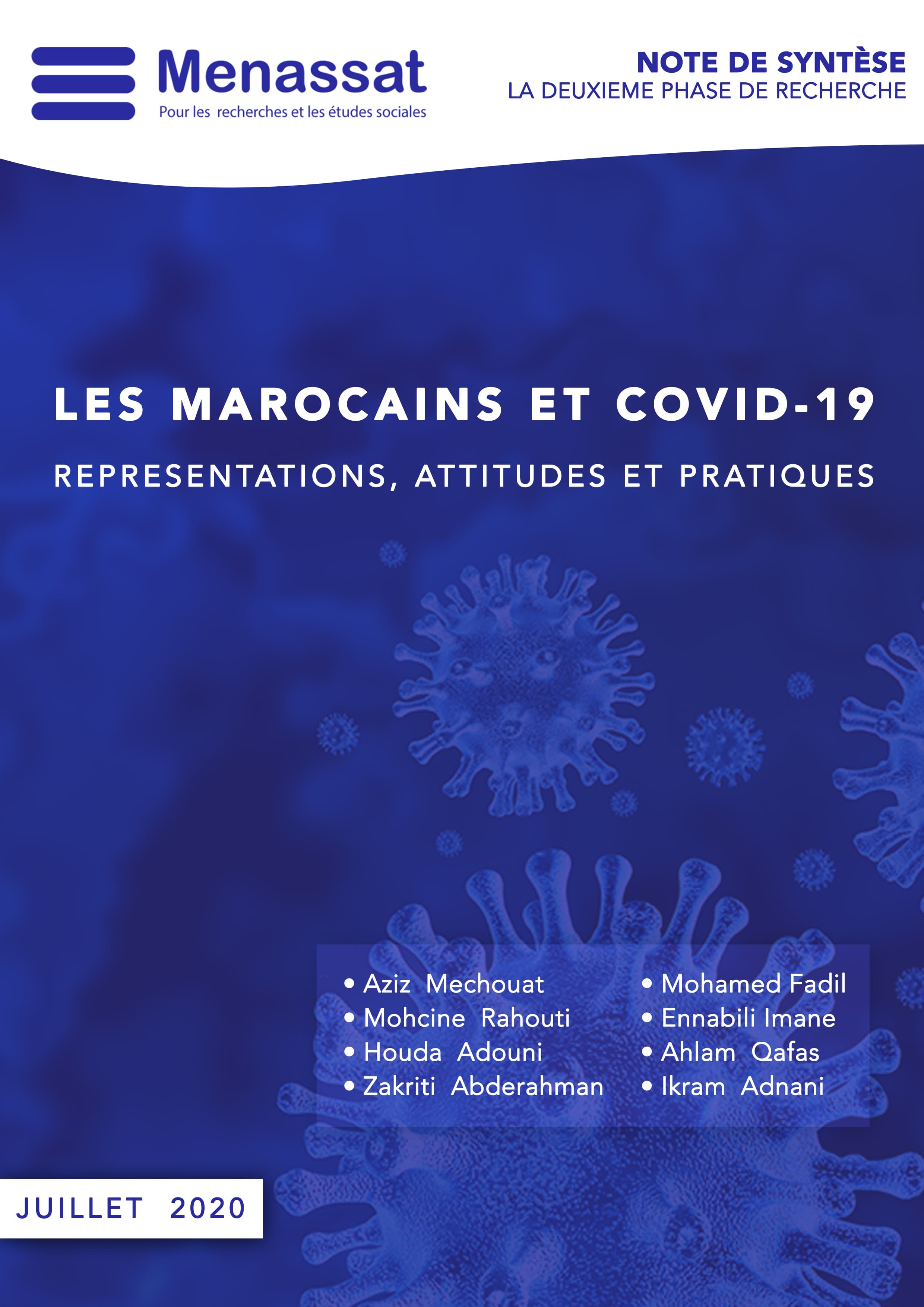
This quantitative survey represents a population of 2556 persons and has been done online, from April the 04th to the 28th, 2020, which corresponds to the first phase of the lockdown. To accompany its second phase, the research team of Menassat, has launched a second wave of the online survey.
The study focused on a balanced sample in terms of representivity of the sex, environment and location then regional distribution : women represent 49% against 51% men. 52,7% of the interviewees live in an urban environment while 39% live in a rural environment and 8.03% in semi-urban orbits.
The goal is to apprehend how people perceive the current sanitary emergency state, be it at the level of their perceptions, attitudes or practices. The study is led by the logic of exploration and accompaniment, while taking into account the time dimension or the three major phases of the lockdown : the beginning, the prolongation and the eventual end.
The majority of the population targeted is well-informed on the pandemic of covid-19 . More than 90% of the respondents have an adequate knowledge of « Corona », they are capable to affiliate it to the category of viruses with no confusion with for example : bacteria or parasites. Likewise, the knowledge by the respondents of the symptoms of the virus, its location of spreading and the steps to follow in case of suspicion, stay acceptable . That could be due to the nature of the sample and of their level of instruction, given that all the respondents are schooled. That fact can also be attributed to the media, where 77,9% of the respondents regularly follow «Corona» news via national media and 97% of the sample studied have access to the Internet.
However, the origin of the virus constitutes a real concern for more than half of the sample i.e. 58,7%. This proportion is convinced that it is the result of the laboratory industry. Otherwise 56% of the surveyed are worried about the death threats caused by the virus due to the weakness and the fragility of the sanitary infrastructures and hospitals of the country.
Furthermore, the sanitary security measures taken by the public authorities have been positively perceived by the respondents which has maintained a relation of strong trust. For 87,9% of them, these measures are essential against 93% that values them as satisfactory at varied degrees. Thus, we notice, for example, that despite the subject’s sensibility and its coincidence with the holy month, the authorities’ decision to close mosques and places of worship was accepted by 96,1% of the individuals who confirmed its necessity.
It also indicates that this satisfaction has been accompanied by citizen’s implication in the sensitization about the dangers of Covid-19 through the percentage of 73,4%. This shows a strong sense of social responsibility. The latter also appears in the proportion that continually follows the evolution of the pandemic on the national media which rises to 77,9%. All the more so 99% of the targeted population evoked the subject of the pandemic, during conversations with the close ones and others, in a variable way.




